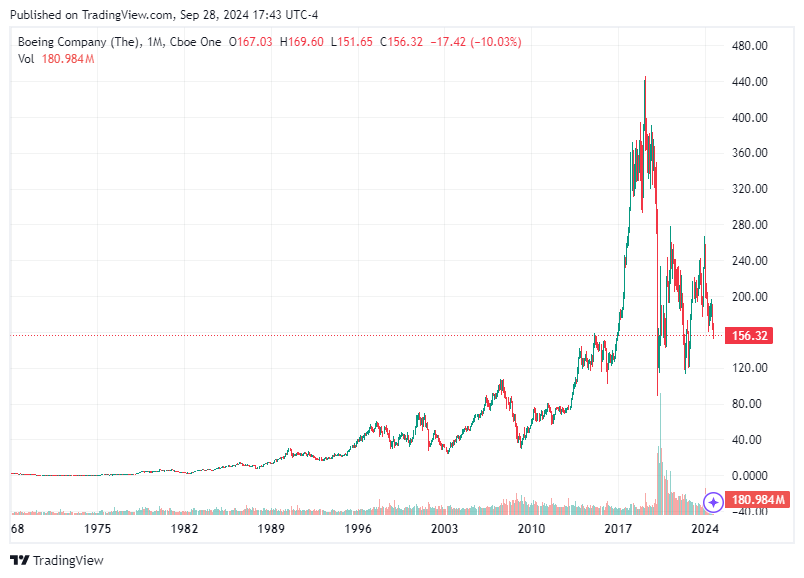U.S. Safety Officials Call For Action On Boeing 737 Rudder System
Addressing Urgent Safety Concerns: Boeing 737 Rudder System Under Scrutiny.

Disclaimer: This article is intended for informational purposes only and does not constitute legal or professional advice. The information presented is based on publicly available sources and may not reflect the most current developments regarding the Boeing 737 rudder system issue.
Maintaining safety is a critical priority, and when potential issues are identified, it is essential for industry stakeholders to respond swiftly. Recently, the National Transportation Safety Board (NTSB) issued urgent recommendations concerning the rudder system on specific Boeing 737 aircraft. This warning arose from an incident involving a United Airlines flight, which highlighted a malfunction in the rudder system and emphasized the need for immediate corrective measures.
The incident in question involved a United Airlines flight traveling from Nassau, Bahamas, to Newark, New Jersey. During the landing roll, the rudder pedals stopped responding. Fortunately, no injuries were reported, as the captain was able to control the plane using the nosewheel steering system. However, this event prompted an investigation by the NTSB, leading to broader concerns about the rudder system's performance in cold weather conditions.
Collins Aerospace's Role and Manufacturing Error
The rudder is a crucial component of an aircraft's control system, allowing pilots to manage the plane's side-to-side movement. A malfunction was identified within this critical system on Boeing 737 Next-Generation and 737 Max aircraft, particularly in cold conditions. The investigation revealed that the rollout guidance actuator, an essential part of the rudder control system, was prone to losing functionality due to moisture exposure.
NTSB investigators tested the actuators at Collins Aerospace, the manufacturer responsible for these components, and discovered that they failed to operate properly in cold temperatures. This failure was linked to moisture, which could freeze and hinder the actuator's movement, thereby affecting the rudder system. The investigation pinpointed a production error involving a sealed bearing that was assembled incorrectly, leaving it vulnerable to moisture infiltration. Collins Aerospace, a key supplier in the aerospace industry, was identified as the maker of the faulty rollout guidance actuators. The NTSB's investigation revealed a critical oversight during manufacturing—an improperly assembled sealed bearing. This error resulted in one side of the bearing being unsealed, which allowed moisture to enter and freeze, thus impairing the actuator's performance.
This manufacturing oversight highlights the importance of strict quality control processes within the aerospace industry. Collins Aerospace's role in addressing this issue is crucial, as corrective actions must be implemented to prevent similar occurrences and ensure the safety of aircraft equipped with these components.
Response from the FAA and United Airlines
Following the NTSB's findings, the Federal Aviation Administration (FAA) and United Airlines have taken actions to address the issue. The FAA reported that United Airlines was the only U.S. operator with the affected components in its fleet. According to the FAA, these units are no longer in service, indicating a proactive approach to reducing risk.
United Airlines has been collaborating with regulatory authorities and the manufacturer to ensure that the necessary corrections are made. The airline's cooperation presents the need for collaborative efforts between airlines, manufacturers, and regulatory bodies to uphold the highest safety standards. The findings regarding the Boeing 737 rudder system issue have broader consequences for the aviation industry. This incident serves as a reminder of the complexities involved in aircraft design and the potential for unforeseen malfunctions. It also emphasizes the need for ongoing vigilance and robust safety protocols.
To avoid similar issues in the future, stakeholders across the aviation sector must prioritize thorough testing and quality assurance at every stage of the manufacturing process. Additionally, improving communication channels between regulatory authorities and manufacturers can facilitate the quick identification and resolution of safety concerns. The recent concerns surrounding the Boeing 737 rudder system highlight the critical nature of aircraft safety and the necessity for immediate action when potential risks are identified. The NTSB's urgent recommendations, along with the responses from the FAA and United Airlines, demonstrate the industry's commitment to addressing safety issues promptly and effectively.
As the aviation sector continues to evolve, ensuring the reliability and safety of aircraft systems remains a top priority. By learning from incidents like the Boeing 737 rudder system malfunction, the industry can strengthen its safety framework and protect the millions of passengers who rely on air travel each year.
Disclaimer: The information provided in this article is based on available data and may be subject to change as the situation develops. Readers are encouraged to consult official sources for the latest updates on the Boeing 737 rudder system issue.
We are working endlessly to provide free insights on the stock market every day, and greatly appreciate those who are paid members supporting the development of the Stock Region mobile application. Stock Region offers daily stock and option signals, watchlists, earnings reports, technical and fundamental analysis reports, virtual meetings, learning opportunities, analyst upgrades and downgrades, catalyst reports, in-person events, and access to our private network of investors for paid members as an addition to being an early investor in Stock Region. We recommend all readers to urgently activate their membership before reaching full member capacity (500) to be eligible for the upcoming revenue distribution program. Memberships now available at https://stockregion.net


